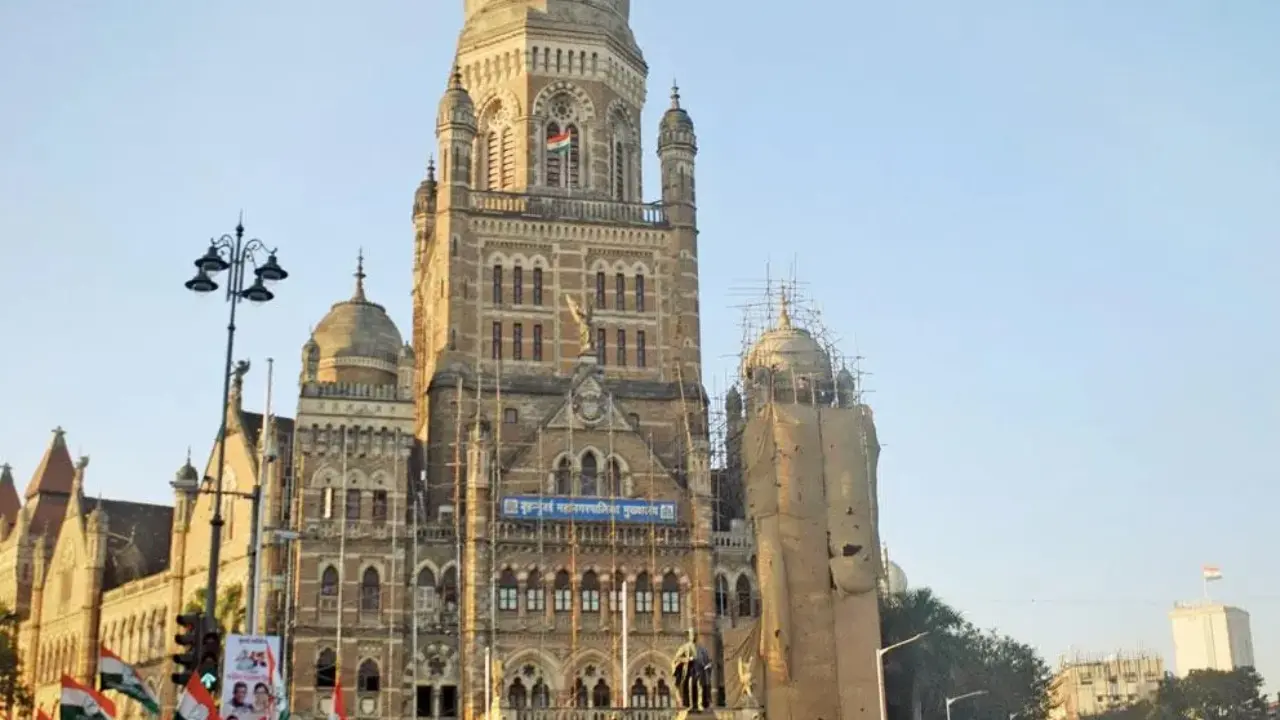Mumbai's water supply system struggles with significant disparities between the available water resources and how they are distributed throughout the city, Milind Mhaske, CEO of Praja Foundation said

Praja Foundation’s report strongly suggests constructing sufficient, functioning public and community toilets. File Pic
The Praja Foundation on Tuesday launched its “Report on the Status of Civic Issues in Mumbai,” with a focus on Water, Sewerage, Solid Waste Management, Toilets, and Air Quality and flagging basic civic shortfalls in the city.
The Brihanmumbai Municipal Corporation (BMC), stands out as one of the wealthiest municipal corporations in the world. Its annual budget surpasses that of many Indian states. For 2025–2026, the BMC announced its annual budget to be Rs 74,366.76 crores, 24 per cent more than the last fiscal year.
Milind Mhaske, CEO of Praja Foundation said, “Mumbai's water supply system struggles with significant disparities between the available water resources and how they are distributed throughout the city. Mumbai receives 4,370 Million Litres Per Day (MLD) of water daily, but due to pipeline losses, only 3,975 MLD reaches users. Despite the prescribed guidelines by the Ministry of Housing and Urban Affairs, the per capita supply meets the national norms. Slum residents get around 45 litres/day versus 135 litres/day in non-slum areas. The slum households therefore rely on costly private tankers, paying Rs 750/month, compared to Rs 25.76/month for metered users. The promise of 24x7 water supply remains unfulfilled, with only 8 per cent of city zones getting round-the-clock water in 2024, while 71 per cent receive up to four hours daily.”
Solid waste management (SWM) in the city is also declining. Complaints about it have increased by 380 per cent (from 5,213 to 25,031) since 2015. The city still relies on two large dumping grounds at Deonar and Kanjurmarg. Recently, the Bombay High Court directed the civic officials to look for an alternative dumping ground and stop using Kanjurmarg, the report said.
It said that BMC's Environment Status Report (ESR) 2023–2024 reveals that 5,500 metric tonnes per day (MTD) of waste goes to the Kanjurmarg landfill and 700 MTD goes to the Deonar dumping ground. However, data received through the Right to Information Act paints a different picture. It shows that, in 2024, 6.7 lakh MTD (1,841/day) of waste was transported to Deonar and 18.3 lakh MTD (5,018/day) of waste was dumped at Kanjurmarg. The discrepancies evident in the data raise serious concerns about whether statutory instruments such as ESR reports are being duly considered.
Shreyas Chorgi, Manager of Research and Analysis at Praja Foundation, noted, in 2024, “Mumbaikars have recorded over 1.15 lakh citizen complaints -- a sharp 70 per cent increase compared to 2015. Through Mumbai’s Centralised Complaint Registration System (CCRS) in the last 10 years, there has been a 380 per cent increase in complaints about SWM, air pollution complaints have increased by 334 per cent, and drainage complaints have risen by 59 per cent. In 2024, from the total of 14,522 water-related complaints, 44 per cent were about shortage of water. Time taken to resolve all complaints also increased from 32 days in 2023 to 41 days in 2024.”
Praja Foundation’s report strongly suggests constructing sufficient, functioning public and community toilets. It also recommends implementing 100 per cent metered water connections in slums to allow them access to the required quantity of water. The report further proposes that biodegradable waste should be composted and promotes the circular economy model, where waste is treated as a resource and reused, recycled, or repurposed.
 Subscribe today by clicking the link and stay updated with the latest news!" Click here!
Subscribe today by clicking the link and stay updated with the latest news!" Click here!








